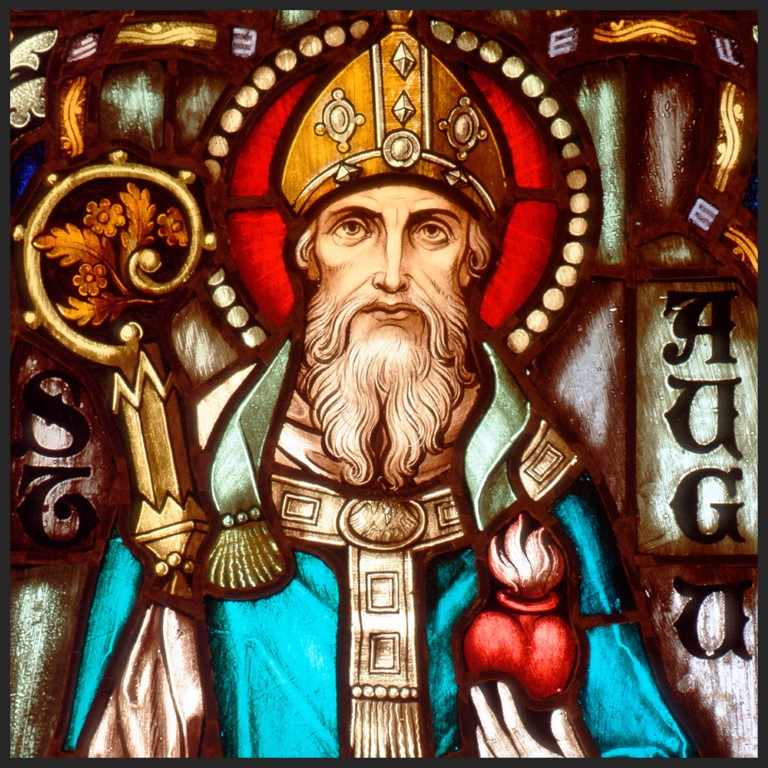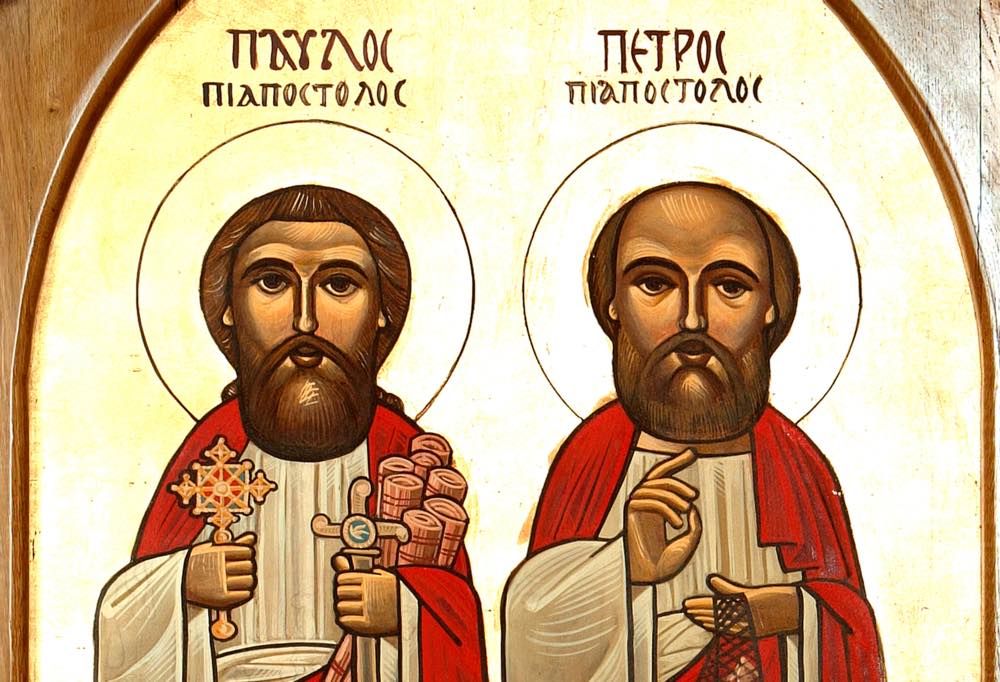– Anastasios
Honestly speaking, one feels a sort of embarrassment when there is the need to talk, in such a little space, of a giant like Saint Augustine, a thinker, a saint, a bishop that would need volumes to only grasp the depth of his life. All the Fathers of the Church deserve our attention and respect. Some of them were really influential also for the successive development of theology. Let us think of St Ambrose, St Jerome, St Basil, Origen (this one in a more problematic way). But no one was as influential as Saint Augustine of Hippo (354-430), probably the most important Christian thinker in history together with Saint Thomas Aquinas.
Augustine was influenced in his young age by ideas that were opposed to Christianity and was not in communion with the Church. He was a brilliant man, a rhetorician, but his life was far from the demands of the fellowship in the faith. Likewise, his personal life was troubled. He had a son with a woman and was fond of earthly pleasures. His mother, Monica, was a pious Christian and prayed for his conversation with great strength and many tears. The conversion will arrive and not only that. Augustine will be a bishop and a writer, giving to humanity (because his works are a gift to everyone, even non-Christians) some of the most important works in western literature, as the Confessions, The City of God, On the Trinity among the many others.
In the Opus Dei website it is said of him: “Saint Augustine is above all a Shepherd who sees and defines himself as a ‘servant of Christ and servant of the servants of Christ.’ And his life exemplified these words in all their consequences: full availability to the needs of the faithful; the desire to reach salvation only alongside those he shepherded (“I don’t want to be saved without you”); the petition to God to always be ready to die for his flock; love for those in error, even when they had no love for him or mistreated him. In sum, he was a Shepherd in the fullest sense of the word. Saint Augustine’s preaching was both rich and abundant. Over 500 of his homilies have come down to us, preached in his own voice, including his Commentary on the Psalms (Enarrationes in Psalmos) and On the Gospel of Saint John (In Ioannis Evangelium tractatus), and the Sermones, a title given by scholars to the compilation of 363 individual discourses considered authentic. For Saint Augustine, who set out his theory of preaching in Book IV of his work De doctrina christiana, the preacher is above all a person with a deep knowledge of Sacred Scripture, who knows how to reach people where they are, moving their minds and hearts. All his preaching is marked by a marvelous grasp and love for the revealed word of God.”
His most famous work is the Confessions, an extraordinary book on which Augustine presented his Christian pilgrimage and his conversion to the true faith. In chapter X, there is a passage where he speaks of the reasons he loves God: “Not with doubting, but with assured consciousness, do I love Thee, Lord. Thou hast stricken my heart with Thy word, and I loved Thee. Yea also heaven, and earth, and all that therein is, behold, on every side they bid me love Thee; nor cease to say so unto all, that they may be without excuse. But more deeply wilt Thou have mercy on whom Thou wilt have mercy, and wilt have compassion on whom Thou hast had compassion: else in deaf ears do the heaven and the earth speak Thy praises. But what do I love, when I love Thee? not beauty of bodies, nor the fair harmony of time, nor the brightness of the light, so gladsome to our eyes, nor sweet melodies of varied songs, nor the fragrant smell of flowers, and ointments, and spices, not manna and honey, not limbs acceptable to embracements of flesh. None of these I love, when I love my God; and yet I love a kind of light, and melody, and fragrance, and meat, and embracement when I love my God, the light, melody, fragrance, meat, embracement of my inner man: where there shineth unto my soul what space cannot contain, and there soundeth what time beareth not away, and there smelleth what breathing disperseth not, and there tasteth what eating diminisheth not, and there clingeth what satiety divorceth not. This is it which I love when I love my God.”
I would need so much space to quote wonderful passages only from this work, without mentioning all the others. We have to return to these giants, these great masters, that can give us a solid nourishment for the development of our faith.


 Follow
Follow


